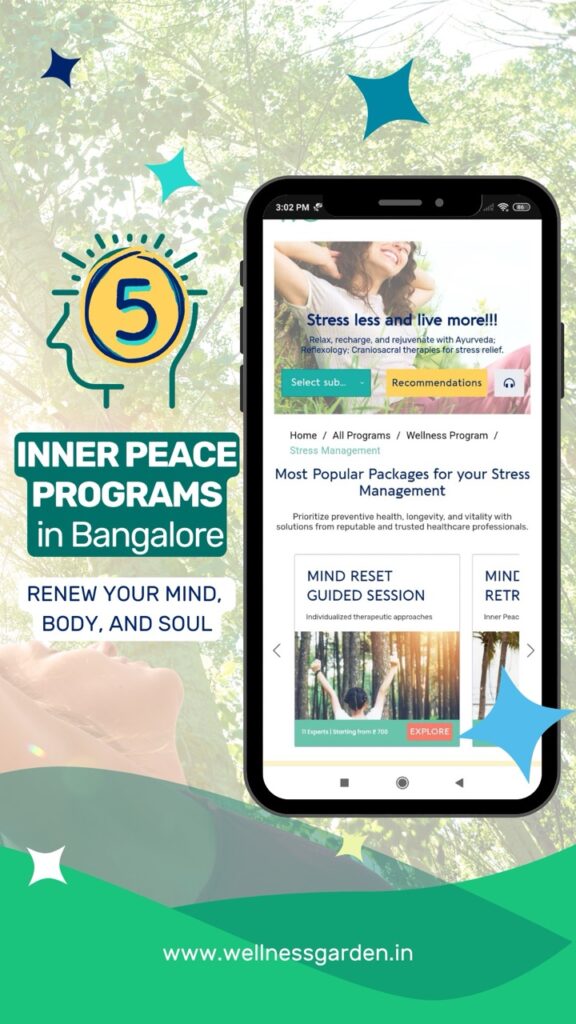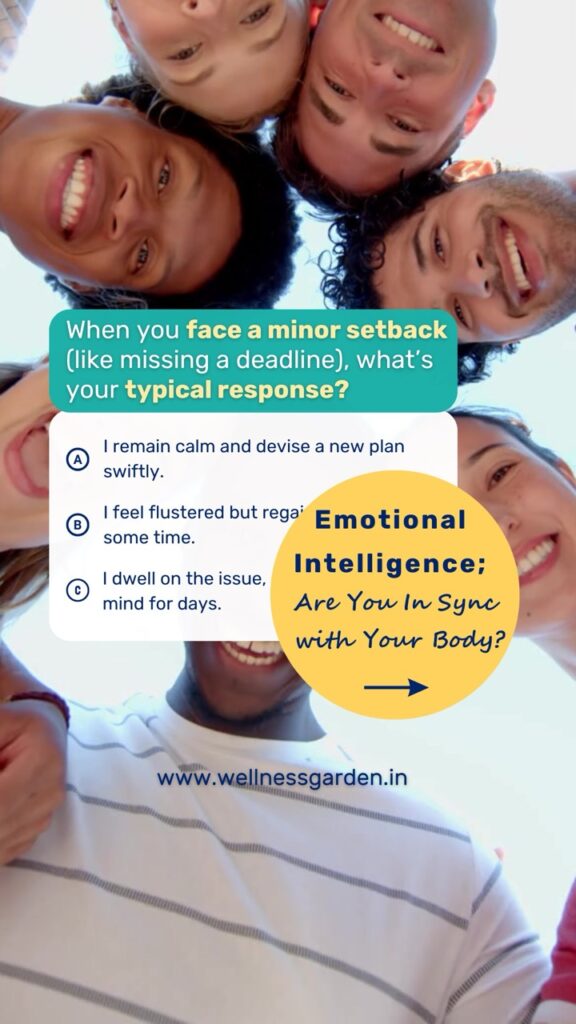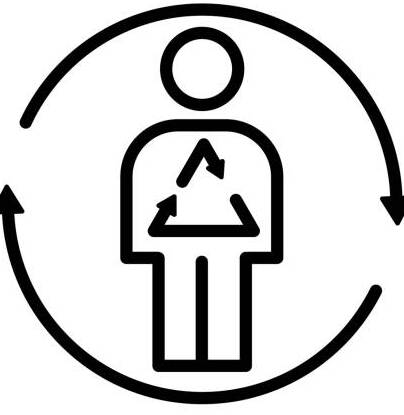How Sound & Music Therapy for Mental Health Aid Trauma Recovery
- Harmony
- 3 Min
- June 14, 2024
- Ryan Adamov
- Anxiety, MindBody, Sound
There’s no denying that music holds a deep psychological influence. Research reveals it engages brain regions linked to emotion, memory, and sensory pathways rhythms.
Trauma leaves deep-rooted effects—emotional, mental, and physical. While approaches like cognitive behavioral therapy (CBT) and medication remain widely used, growing research shows that sound and music can offer powerful healing potential. As music therapist Katie Down shared in a Pitchfork article, nearly every individual experiences some form of trauma during their lifetime.
At Wellness Garden, a Bangalore-based digital platform, we connect you with certified experts who specialise in sound-based therapies. Through music therapy for mental health, these practitioners create personalized paths to emotional recovery.

Music Therapy for Mental Health: The Role of Therapeutic Sound
The American Music Therapy Association (AMTA) reveals, music therapy is a clinical, evidence-based practice that uses musical techniques within a therapeutic relationship to achieve targeted healing outcomes.Therapeutic sound refers to the intentional use of rhythm, tone, and sound waves to promote emotional and physical healing. Grounded in neuroscience, this approach shows how music influences brain activity and bodily rhythms, helping to restore balance and calm. Studies reveal that engaging the nervous system through guided sound experiences can ease trauma, elevate mood, and enhance clarity.
According to the World Federation of Music Therapy, elements like tempo, pitch, tone quality, and harmony support emotional expression, gentle movement, and a sense of peace. Various approaches—including Analytical Music Therapy, Enzenzohn Method, Cognitive-Behavioral Music Therapy, Nordoff-Robbins, and Community Music Therapy—apply these principles uniquely, tailoring sessions to address individual mental health needs.
Together, these methods show that music therapy for mental health goes beyond relaxation—it’s a transformative, clinical tool led by trained professionals.
The Healing Power of Sound in Trauma
The idea of using music and sound in therapy is not new. Music has long been applied as a form of healing in various cultures. This technique is supported by present-day studies, which shows how music can influence brain activity and foster neuroplasticity, the brain’s capacity to transform itself through the formation of new neural connections. Because neuroplasticity allows the brain to recover from the fluctuations brought on by traumatic conditions, it is essential for trauma rehabilitation.
Neuroplasticity and The art of music
According to research published in 2017, music can greatly enhance neuroplasticity, even when linked with artistic interests like dancing, painting, video games, and physical activity. Investing in such tasks stimulates the brain, promoting the development of new neural connections that may enhance mental wellness in general, emotional control, and cognitive abilities. In specific, music therapy has been proven to elevate mood, boost memory and learning of new materials, and raise the ability to concentrate.
How Therapeutic Sounds/Music Works?
A lot of mechanisms explain how music helps people recharge from trauma:
- Emotional Control: People can safely discover and convey how they feel in a safe environment as music has the ability to evoke and regulate moods.
- Cognitive Interaction: Listening to music can increase memory and learning, as well as help people rebuild their brain systems.
- Benefits to Physiology: Rhythmic melody may regulate brain waves, which encourages sleep and lowers stress signs.
- Enhancing Quality of Life: By giving trauma survivors a feeling of joy, happiness, and a reason, music therapy can improve their standard of life.
- Reducing Stress: Soothing music has the ability to lower levels of cortisol, which in turn reduces stress and fosters sleep.
How does the Music Therapy Session start?
A variety of holistic health-focused treatments, such as music therapy(2024), are frequently provided by wellness clinics. The usual approach used in our wellness centers to provide music therapy is as follows:

1.The first session normally starts with a visit to find out about the individual’s requirements, history, and trauma. This makes it easier to modify therapy to meet each patient’s unique needs.
2. Scheduled Sessions: Our professional experts provide music therapy programs that are carefully planned. They might consist of:
- Active Music Making: Individuals express their feelings and feel a sense of purpose by improvising, singing, or performing instruments.
- Friendly listening: Streaming particular kinds of music to help people unwind and feel less anxious.
- Guided Imaging and Music (GIM): An approach in which patients utilize music in order to bring up subconscious images which help in exploring and processing of their feelings.
3. Groups Counseling: A lot of health care facilities give group music therapy meetings, which boost the therapeutic sounds effects even more by offering social assistance and a forum for sharing experiences.
Additional Tips
According to technological advances, music therapy is now accessible visually, allowing for therapeutic sounds sessions to take place in the ease of your own home. Here’s how to apply the following strategies:
- Online Therapy Sessions: Licensed music therapists can conduct live, interactive sessions via platforms such as Zoom or Skype. Such convenient and flexible meetings can be just as beneficial as therapy in person.
- Directed Videos and Applications: Pre-recorded lessons and assisted videos are available on a number of apps and web platforms. Anyone can use these tools to participate in musical therapy techniques like guided display, therapeutic music choice, and methods of relaxation.
- Simple Do It Yourself: Make a playlist of energizing and calming songs, play or sing musical instruments for up to fifteen minutes per day, or use musical apps. You may also use apps to assist you through musical practices for periods of meditative listening and calm.
Safety and Consideration
Music therapy is relatively safe and harmless. Yet, you may have unpleasant or surprising thoughts when listening to music.Your music counsellor will discuss your life incidents with you in an effort to lessen the likelihood of this occurring. This includes any traumatic memories or other factors that might affect how you react to music.
Healing Through Sound: How Wellness Garden Supports Your Journey
Sound and music therapy for mental health goes beyond relaxation—it reaches deep into the nervous system, helping regulate emotions, calm the mind, and gently release trauma. Guided meditation, gentle music-based movement, or specific sound frequencies can support healing at every level of the body and brain.
Wellness Garden connects you with trained sound and music therapy professionals who understand how to work with trauma and emotional blocks in safe, personalised ways. Through our digital platform, you can explore sound-based healing and connect with over 600 trusted experts across Bangalore, all focused on restoring balance and supporting long-term wellbeing.
FQAs
1. Can music therapy aid in trauma recovery?
Yes, it helps calm the nervous system and ease emotional stress.
2. Do I need musical skills to participate?
No—sessions are about inner healing, not musical ability.
3. Do I need to know music?
Not at all—just being present is enough.
4. Is it for all age groups?
Yes, it’s effective for kids, adults, and the elderly.
5. What are the 5 key elements of music therapy?
Tone, rhythm, melody, tempo, and harmony.
6. Can it help with depression?
Yes, it supports pain relief, mood upliftment, and emotional resilience during tough phases.
- Table of Contents
- • Introduction
- • How Music Works?
- • Steps of session
- • A Word From WG
Recent Posts
Join Our Newsletter
End note from WG Team
WG Team
Disclaimer: This information is provided for educational purposes and should not be construed as medical advice. Please consult with healthcare practitioners before undertaking any changes in wellness routines or adding new therapies.
Latest Blogs
Check out some of your blogs related to your interest.
- March 1, 2026
- 3 Mins

- February 15, 2026
- 3 Mins
- February 7, 2026
- NIH
- 3 Mins

- January 4, 2026
- Marc Cohen, MBBS (Hons)
- 3 Mins






